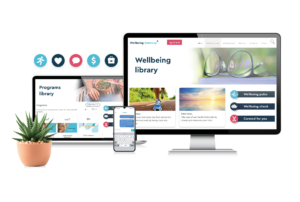It allows you to take control of your finances, achieve your financial goals, and navigate unexpected expenses with confidence.
This is particularly true in the current financial climate, where Australian’s are a facing a cost-of-living crisis due to rising inflation costs, interest rates, and property markets, combined with relatively stagnant wage rates.
While everyday expenses continue to increase, here are some tips that you can incorporate into your day-to-day life that may improve your spending habits and find some relief.
1. Know what you’re spending
Knowledge is power – awareness is the first step towards control. So track your spending to better understand your habits.
You can do this in a budgeting app or by keeping a simple spending log to track your income and expenses, both regular and sporadic.
Categorise your spending to help you identify areas where you can potentially cut back.
For example, you may find that you have multiple subscription services but only regularly use a few.
You can cancel some that you don’t use as often or you may be surprised by how often you opt for convenience foods over buying groceries.
2. Prioritise needs over wants
Differentiate between your essential needs (rent or mortgage, bills, groceries) and non essential wants (subscriptions, entertainment, impulse purchases).
Make sure you have enough set aside for your essential needs first before spending on non-essential items.
This means you can be confident all your essentials are covered.
3. Plan ahead
Start your week by planning out your meals and groceries to avoid over purchasing, food wastage and impulse purchases.
You can also plan and budget for other costs, including entertainment and social gatherings.
Put events in your diary so you know in advance how much you may need to budget for these activities.
Stick to the budget you give yourself, and get creative if you’ve spent your allocated budget – for example, invite friends over instead of going out for dinner.
4. Debit vs. credit
Consider the type of card you are using for everyday purchases and make sure it is helping you achieve your financial goals.
For example, debit cards deduct funds directly from your account and encourage mindful spending.
Credit cards have readily available and large credit lines, so can tempt overspending, but do come with other benefits such as loyalty and rewards programs.
If you are using a credit card, make timely repayments to avoid interest charges.
5. Automate your savings or repayments
Reduce your debt as quickly as you can to minimise the interest charges you need to pay.
Research savings accounts with good interest rates that will help maximise your savings.
Set up automatic transfers to repay your debt or to your savings account to help create consistent habits without the manual administration.
6. Small habits make a big difference
Consider your small but frequent costs and how you may be able to reduce them.
For example, if you buy a $4 coffee five days a week, this will cost you over $1,000 a year (double if you need two coffees a day!).
Tracking and reviewing your spending habits will help you find areas where you can reduce your spending in small amounts to see big impact.
7. Wait before you purchase
If there is something you want to buy – don’t purchase it on an impulse.
Wait a day, a week or a month to make the purchase.
If after that time, you’re still thinking about it and want to buy it, treat yourself and enjoy. If you’re not as interested in it as you were before, you just saved some cash!
Get support when you need it
If you require counselling, coaching or support, our experienced clinicians are available. Call us or request an appointment online.
Looking for more resources?
Register for Wellbeing Gateway. Your personalised mental health and wellbeing companion.

